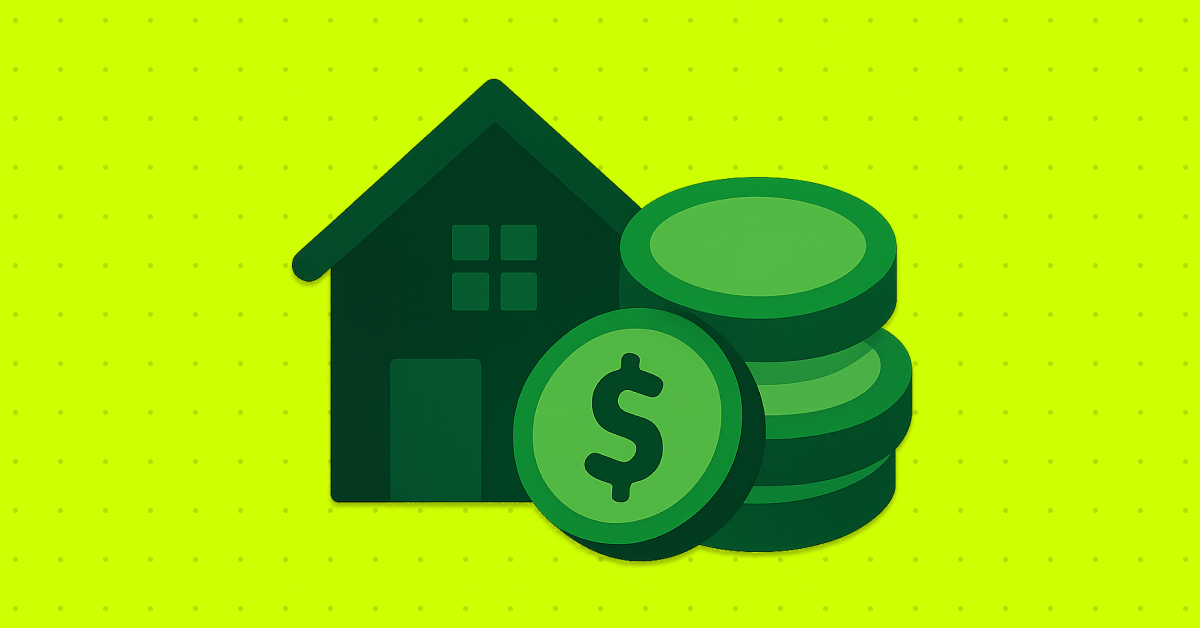What are Mortgage Closing Costs?

You’ve found the perfect house and are ready to buy. Now you just need to pay for it. You probably know that you need a down payment, but what are mortgage closing costs? You may not be aware that you’ll also need cash for closing.
To help you prepare, we break down what mortgage closing costs are and how much you can expect to pay.
What are mortgage closing costs?
Closing costs are fees charged by the lender and other third parties involved in the home buying process. The amount of mortgage closing costs can vary depending on the lender, the loan amount, the type of loan, and the location of the property.
Here are some of the items that may be included in your closing costs:
• Loan origination fees
• Credit report
• Appraisal
• Title search
• Title insurance
• Escrow services
• Survey or plot plan
• Flood determination
• Attorney review
• Transfer taxes
• Recording fees
• Underwriting fees
In addition to the items listed above, your lender is required to provide a loan estimate that will include other costs associated with your loan, such as your interest rate, the annual percentage rate (APR), and your estimated monthly payment.
What are the average closing costs for a mortgage?
The average closing costs for a mortgage are typically between 2% to 5% of the loan amount. For example, if you have a $300,000 mortgage, you can expect to pay between $6,000 to $15,000 in closing costs.
Keep in mind that the amount you pay will depend on the loan amount, the type of loan you have, and the state you’re buying in. Some states have higher taxes and fees, which can increase your closing costs.
As a homebuyer, it’s important to budget for closing costs. If you’re concerned about coming up with the money, you can ask the seller to pay some or all of your closing costs.
Your real estate agent can help you determine how much to ask for, and your lender can let you know the maximum amount the seller is allowed to contribute.
What do closing costs cover?
Closing costs can cover a variety of services, fees, and taxes. Lenders are required to provide you with a Loan Estimate, which will give you a good idea of what you can expect to pay in closing costs. This document will also help you to understand which of the fees can change before closing.
The following is a list of the most common closing costs and fees:
• Appraisal Fee: This is paid to the appraisal company to confirm the fair market value of the home.
• Title Insurance: This fee is typically split between the lender and the buyer. It is paid to the title company to research the title, ensuring there are no liens or judgments against the property. This fee also protects the lender and/or buyer against any future claims.
• Survey Fee: The lender may require a property survey to determine the boundaries of the property.
• Origination Fee: This covers the lender’s administrative costs. It’s usually about 1% of the total loan amount.
• Credit Report Fee: This is paid to the credit reporting company to obtain your credit report.
• Recording Fees: These are paid to the city or county for recording the new deed, mortgage, and homebuyers.
• Underwriting Fee: This goes to the underwriter who reviews and approves your loan.
• Tax Service Fee: This is paid to a third party to monitor property tax payments.
• Broker Fee: This is paid to the mortgage broker if you used one.
• Discount Points: This is an optional fee that allows you to pay extra money on your mortgage to lower the interest rate.
• Lender’s Attorney Review Fees: This is paid to the lender’s attorney to review the closing documents.
• Home Inspection Fees: This is paid to a third party to inspect the home for termites, mold, radon, lead-based paint, or asbestos.
• Homeowner’s Insurance: This is required to protect your home from damage due to fire, hurricanes, earthquakes, and other disasters. Homeowner’s insurance can also protect you from lawsuits stemming from accidents that may occur on your property.
• Private Mortgage Insurance (PMI): If you’re putting down less than 20%, you’ll be required to pay PMI. However, you can cancel your PMI once you’ve made 20% equity in your home.
• Escrow Fees: This is paid to the title company, escrow company, or attorney for conducting the closing. The escrow agent will also prepare the closing settlement statement and the other closing documents.
How do you pay for mortgage closing costs?
There are a few different ways you can pay for your mortgage closing costs. The most common way is to pay them out of pocket. This means you simply write a check for the amount of your closing costs when you close on your loan.
If you don’t have enough money to pay your closing costs, you can ask the seller to pay them for you. This is known as a seller concession and is allowed on most mortgage loans. The seller can agree to pay a portion of your closing costs or they can agree to pay all of your closing costs. However, there are limits on the amount of seller concessions you can receive based on the type of loan you are getting and the size of your down payment.
Another way to pay your closing costs is to have your lender give you a credit in exchange for a higher interest rate. This is known as a lender credit and it can be used to offset some or all of your closing costs. However, keep in mind that taking a lender credit will increase your mortgage interest rate and your monthly payment.
How much do you need for a down payment on a house?
The down payment is the initial payment made when buying a home. Lenders typically require a down payment, and the amount can vary based on the type of loan, the lender, and your credit score.
Conventional loans: Conventional loans typically require a 5% down payment, but a down payment of at least 20% can help you avoid private mortgage insurance (PMI) and could help you get a lower interest rate.
FHA loans: The minimum down payment for an FHA loan is 3.5%.
VA loans: VA loans are available to active duty service members, veterans, and surviving spouses. VA loans do not require a down payment.
USDA loans: USDA loans are backed by the U.S. Department of Agriculture and are designed to help people in rural areas become homeowners. USDA loans do not require a down payment.
Do first-time homebuyers pay closing costs?
The question is not whether you will pay closing costs, but rather how you will pay them. You have a few options when it comes to covering closing costs, but first-time homebuyers will almost always have to pay them in one form or another.
You can pay the closing costs upfront in cash, ask the seller to cover your closing costs in a seller concession, or negotiate a no-closing cost mortgage. Each of these strategies has its own pros and cons, but they all offer a way to help you afford the upfront costs of buying a home.
What are points on a mortgage?
Points are a fee you can pay to lower your interest rate. Usually, one point costs 1% of the loan amount and lowers your interest rate by 0.25%.
If you plan to stay in your home for a long time, it may make sense to pay points to lower your rate and your monthly payments. If you plan to stay in your home for a short period of time, you may want to consider not paying points and taking a higher interest rate.
We can use this information to help you decide whether or not you should pay points.
The bottom line
When you take out a mortgage, you’ll have to pay a variety of closing costs. These can add up to thousands of dollars, so it’s important to be prepared.
A good way to get a sense of how much you can expect to pay in closing costs is to use a mortgage calculator. This tool can also help you estimate your monthly mortgage payment and see how much interest you’ll pay over the life of the loan.
Conclusion
In the end, it is important to understand that mortgage closing costs are a fact of life when it comes to buying a home. The good news is that there are ways to minimize the amount of cash you need to close on a mortgage, and in some cases, you may even be able to avoid closing costs altogether. In the meantime, make sure to use this guide to familiarize yourself with the concept of closing costs and to know what to expect.
